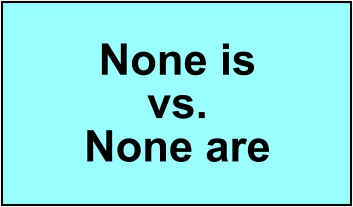Singular Verb or Plural Verb? What are the rules? Do we use a singular or plural verb with these words: None Either Everyone Neither Nobody Someone Here’s the answer. When “none” means “not one” or “no one,” we use a singular verb following it. For example, “None of the presidential candidates is worth voting for.” The singular …
When to use affect vs. effect is confusing – for good reason. Since the 1400s, these words have been more or less interchangeable, with meanings passing back and forth between them. Here’s today’s accepted word usage. Affect “Affect” is mostly used a verb that means “to influence” or “to change.” The state of the economy can …
A common word usage question is when to use “lie” versus “lay.” Here’s a quick tutorial with the meanings and rules for lie and lay. LIE: One usage of the verb “lie” means “to recline” I am going to lie down on the sofa for awhile. Watch the lion lie down on the grass. However… the …
Do you sometimes choose the wrong spelling for these two words that sound the same: “whose” and “who’s?” Here are the spelling rules to remember: “Whose” is an adjective that essentially asks a question about the ownership of something: > Whose shoes are they? > Whose science project won? > I don’t know whose idea that was. …
Many people get confused by the three different spellings for these three words that sound exactly the same: their, there, and they’re. Here are the rules. “Their” is a possessive, third person, plural adjective relating to “something belonging to them” – as in: their house, their political party, their stupid rules of grammar – and the entities …





